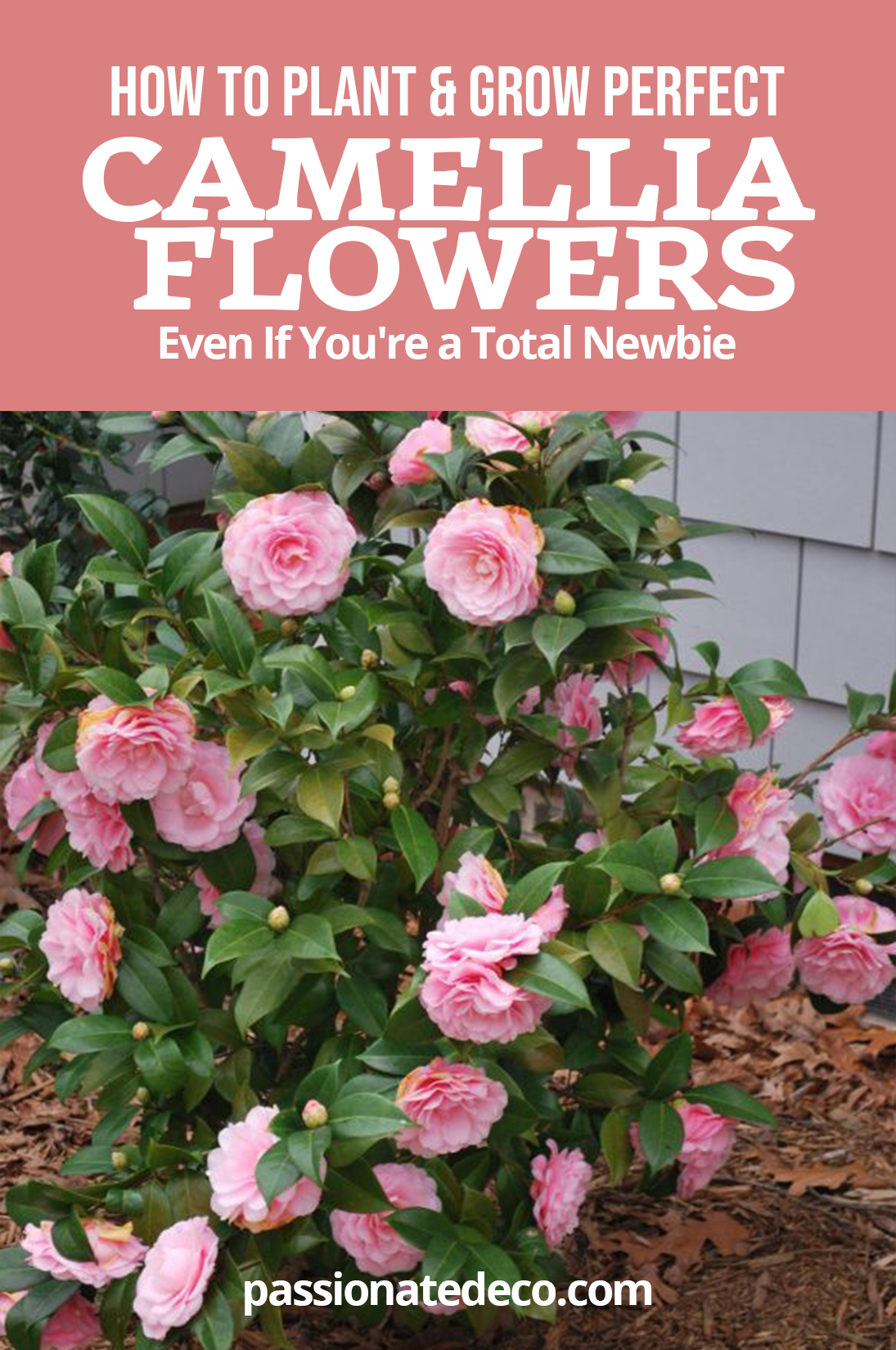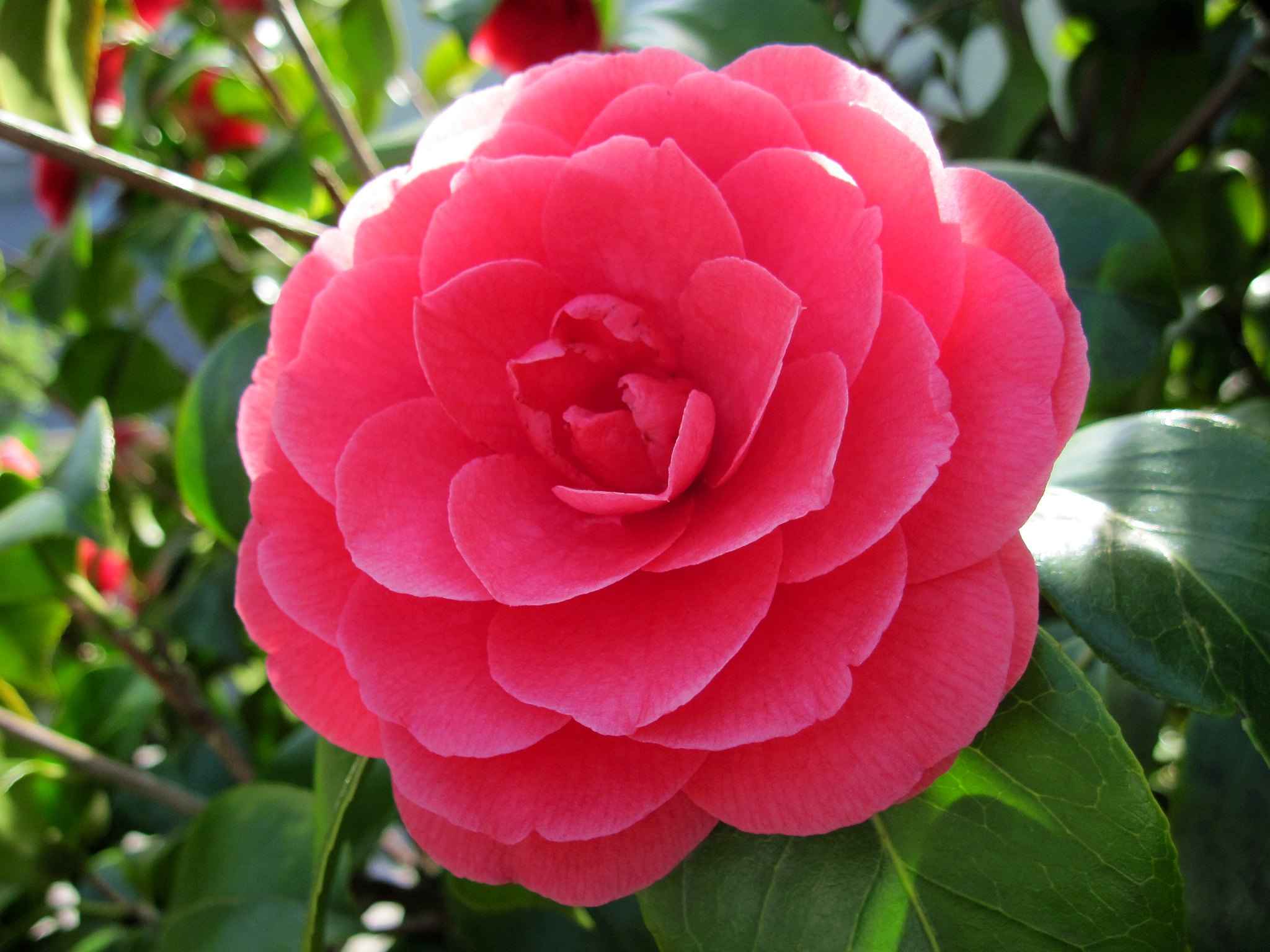If there’s one plant that brings me endless joy during the colder months, it’s the stunning camellia flower.
I fell in love with these elegant blooms because they flourish when most of the garden is asleep.
Today, I’m sharing my personal tips on how to grow camellia flowers and why they’re a must-have in your yard!
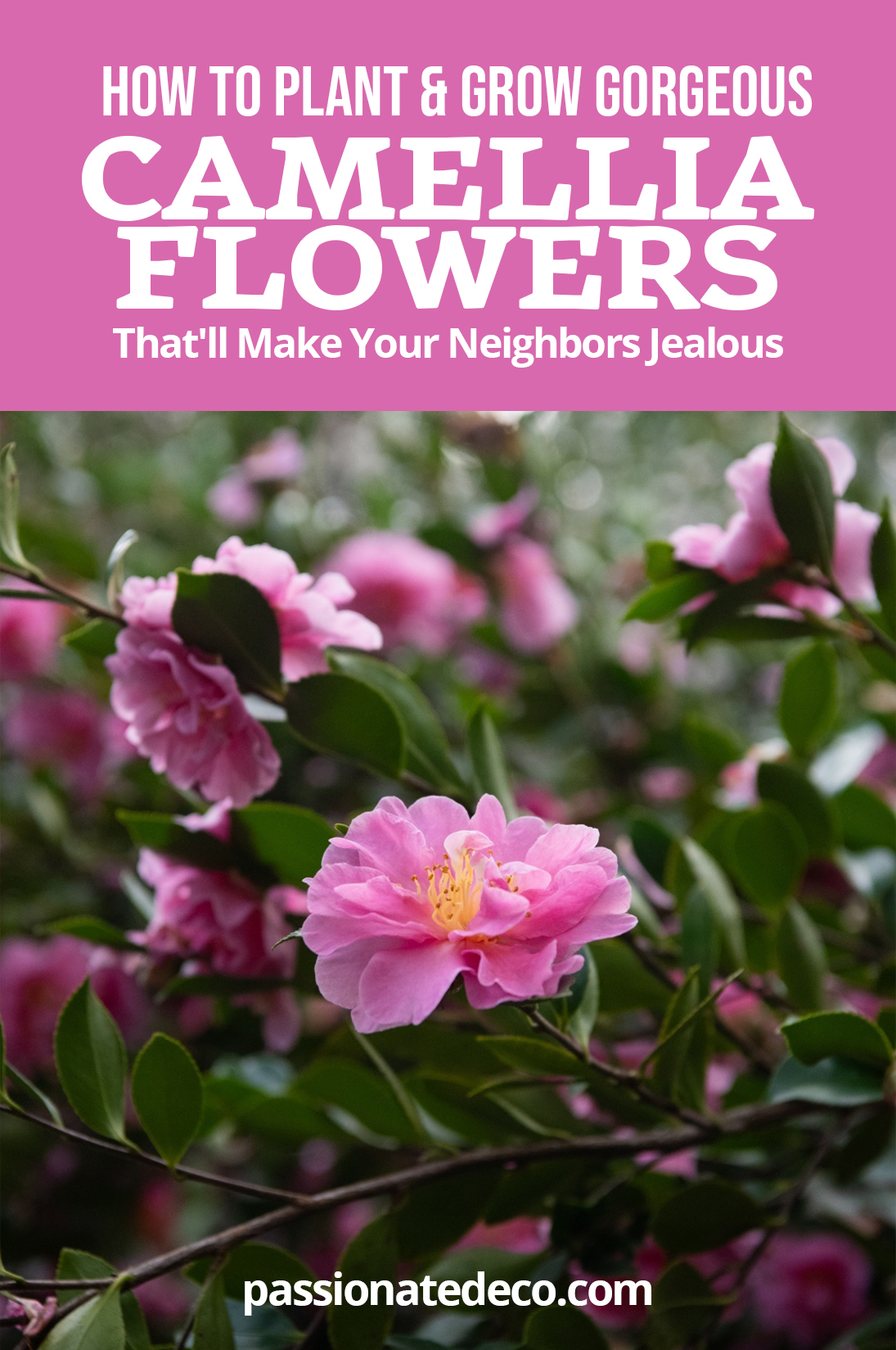
Why Camellia Flowers Are Perfect for Your Garden
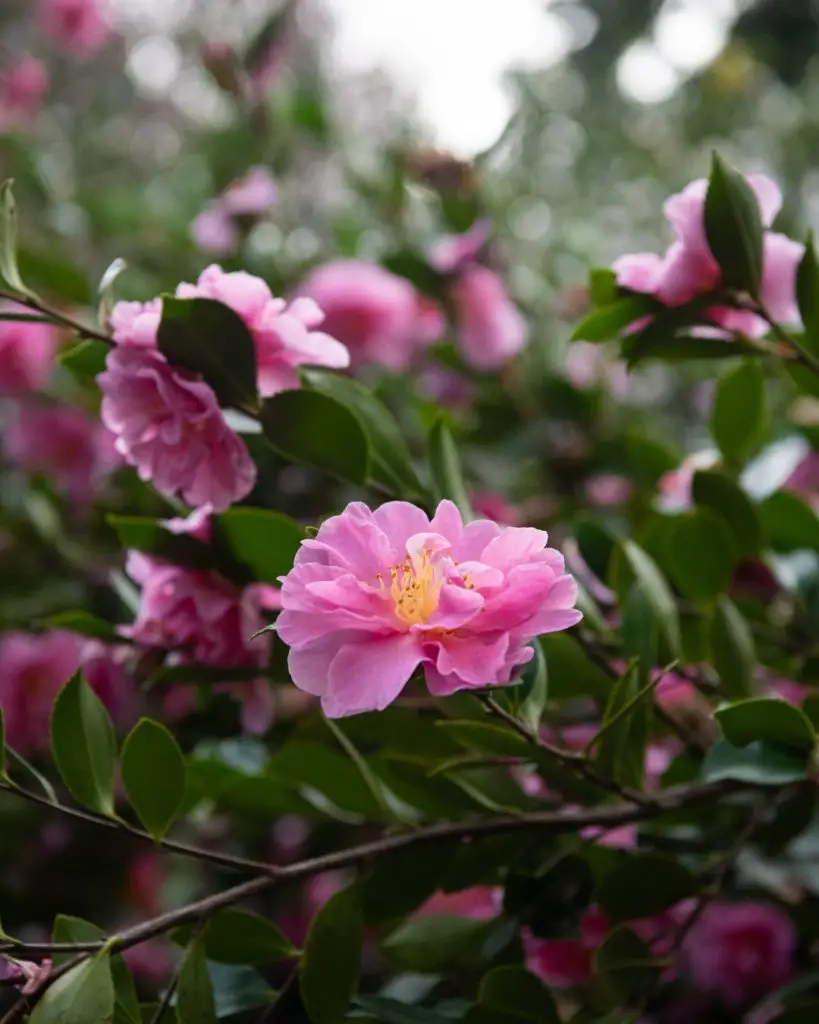
Stunning Winter Blooms
One of my favorite things about camellia flowers is their vibrant beauty during fall and winter. When the garden feels a bit gloomy, they’re like little bursts of sunshine!
Two common camellia flower types you’ll find are:
- Camellia japonica: These have larger leaves and flowers. They bloom from winter to early spring and love shady spots.
- Camellia sasanqua: Smaller blooms, but there are more of them! These beauties flower from fall to winter and can handle a bit more sun—up to 4–6 hours a day.
My yard has both types, and honestly, they’re a game-changer for seasonal interest.
Evergreen Elegance
Beyond their blooms, a camellia tree or shrub stays lush year-round with glossy green leaves. Whether you’re dreaming of enchanting camellia garden ideas or need a bold focal point, these plants deliver.
Camellia Flower Types and Must-Try Varieties
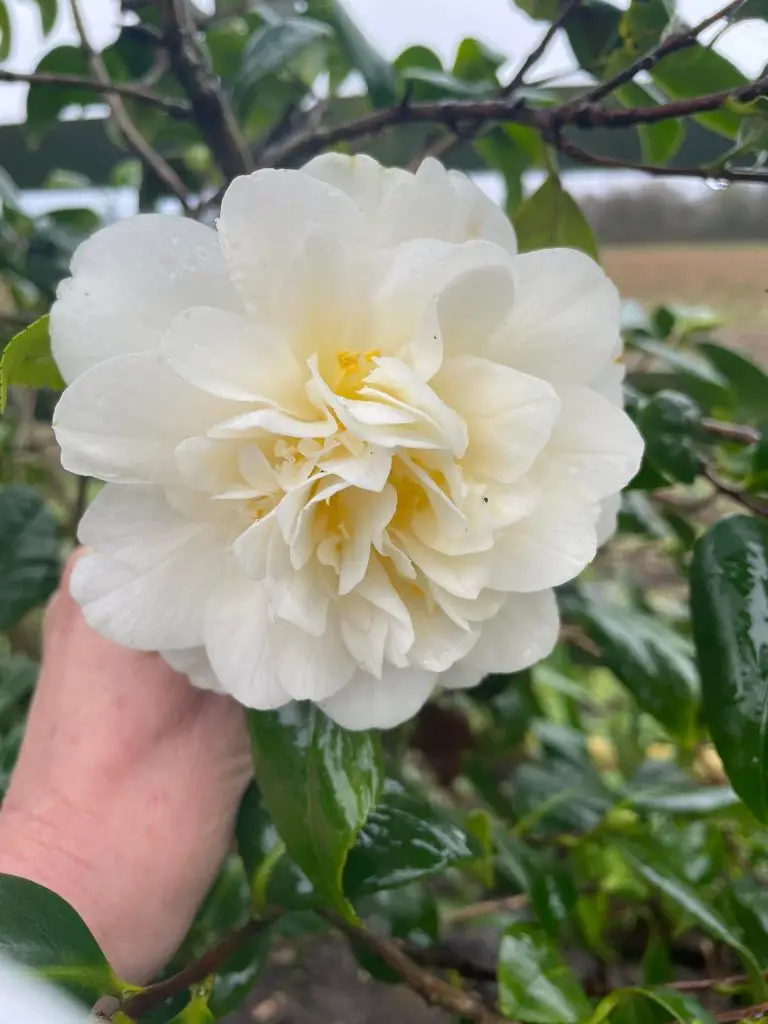
Popular Varieties
Here are some favorites I’ve had amazing success with:
- Camellia japonica:
- Early Wonder: Gorgeous lavender-rose double blooms.
- Kramer Supreme: Big, bold flowers—an absolute showstopper!
- Camellia sasanqua:
- October Magic Inspiration: White petals with magenta edges—pure magic!
- October Magic Rose and Stella: Compact and prolific bloomers, ideal for smaller spaces.
Choosing the Right Variety
Think about when you want them to bloom and how much light your garden gets. Mixing types can give you color all season while enhancing your camellia landscaping vision.
Planting Camellias: Step-by-Step Guide
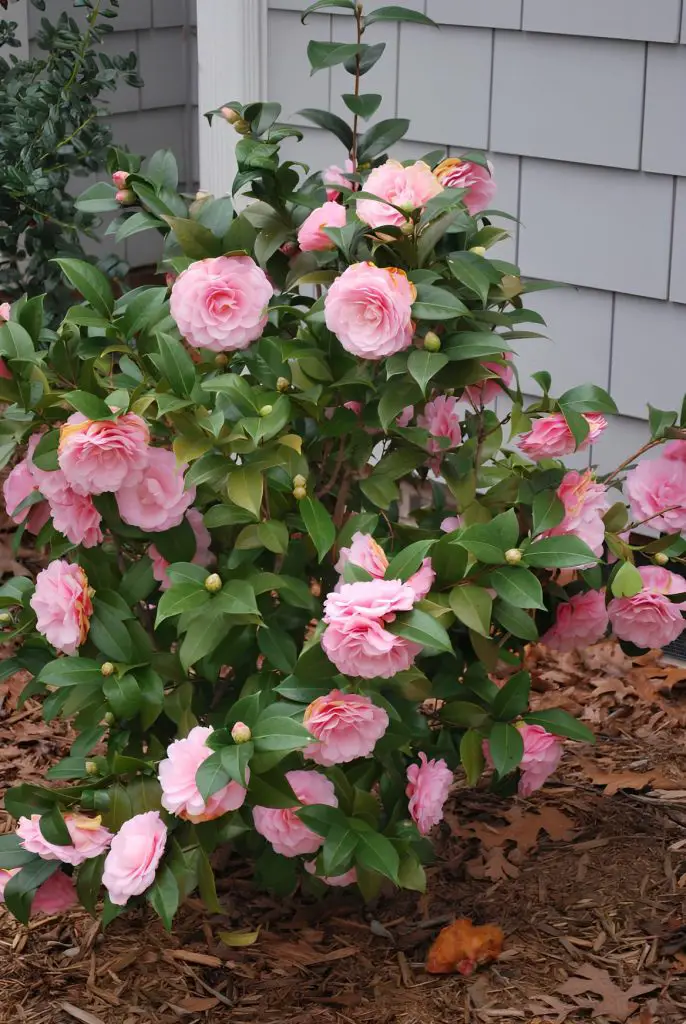
Preparing the Soil and Site
Camellias love slightly acidic soil (pH 5.5–6.5). Here’s what I do:
- Test your soil first. I found an easy kit at my local garden store.
- Add pine bark or organic matter to improve drainage if your soil is clay-heavy.
Pick a part-shade spot, like a woodland edge, for the perfect environment.
How to Plant a Camellia Flower Tree
- Dig a hole slightly wider than the root ball.
- Place the root ball about 1 inch above the soil level to prevent waterlogging.
- Backfill with amended soil and press lightly to remove air pockets.
- Water thoroughly and mulch around the base—but keep mulch away from the stem!
Placement Tips
I made the mistake of planting one behind a large tree once. While it thrived, I could barely see the blooms! Always plant camellias where you can enjoy them.
Essential Camellia Flower Care
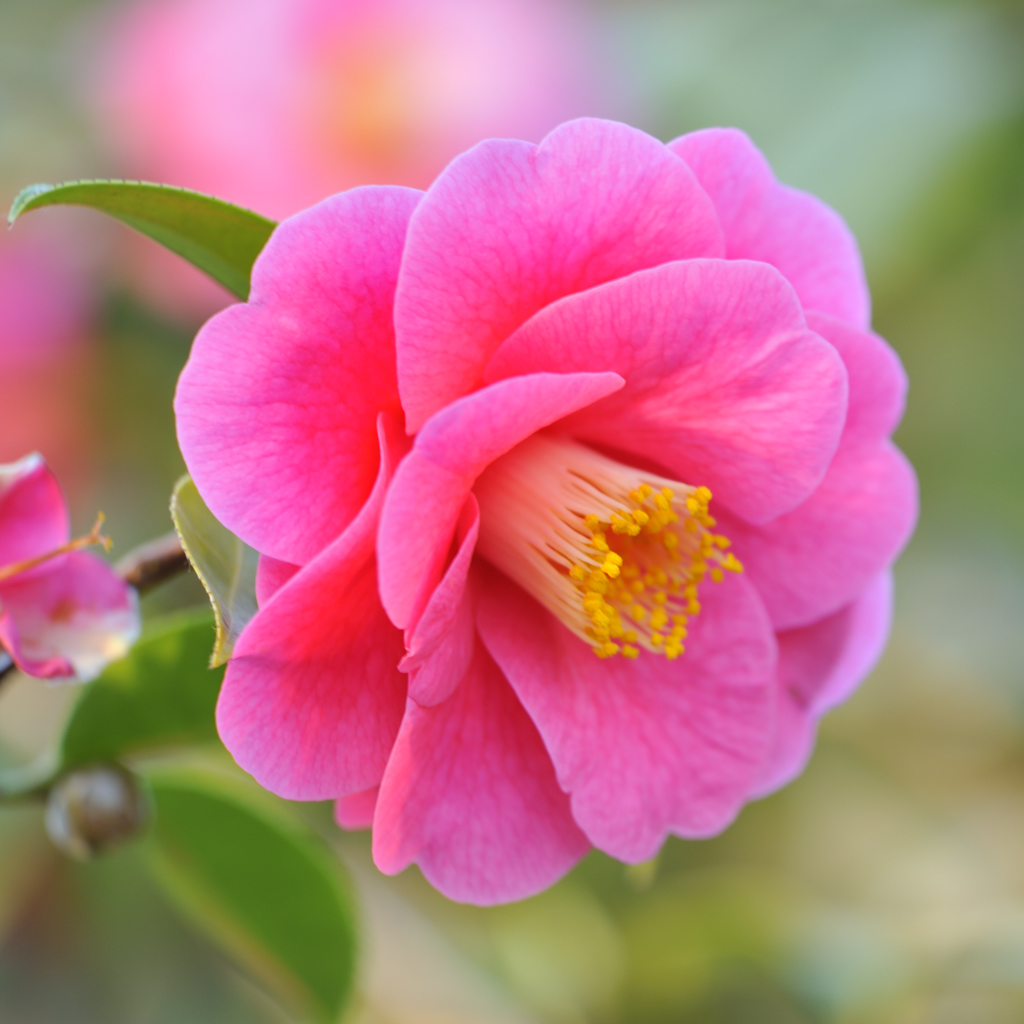
Watering
For the first two summers, check your plants regularly and water deeply. Camellia flowers don’t like soggy roots but can drop buds if they’re too dry.
Fertilizing
In late winter or early spring, I use organic Holly-tone fertilizer. Any rhododendron or azalea fertilizer works too.
When to Prune Camellias
Prune lightly after blooming, usually in early spring. Remove any dead branches and shape your plant as needed. Avoid heavy pruning—it might delay flowers for a season.
Avoid Common Mistakes When Growing Camellias
Incorrect Soil
Camellias thrive in acidic soil. If you’re unsure, look around your neighborhood for other acid-loving plants like azaleas or hydrangeas.
Poor Placement
Too much sun can scorch leaves, so aim for part-shade areas.
Improper Pruning
Always prune camellia trees after flowering. Pruning at the wrong time removes next season’s buds—a mistake I’ve sadly made before!
Lack of Water
Keep them hydrated, especially during droughts, or risk losing those beautiful buds.
Tips for Beginners
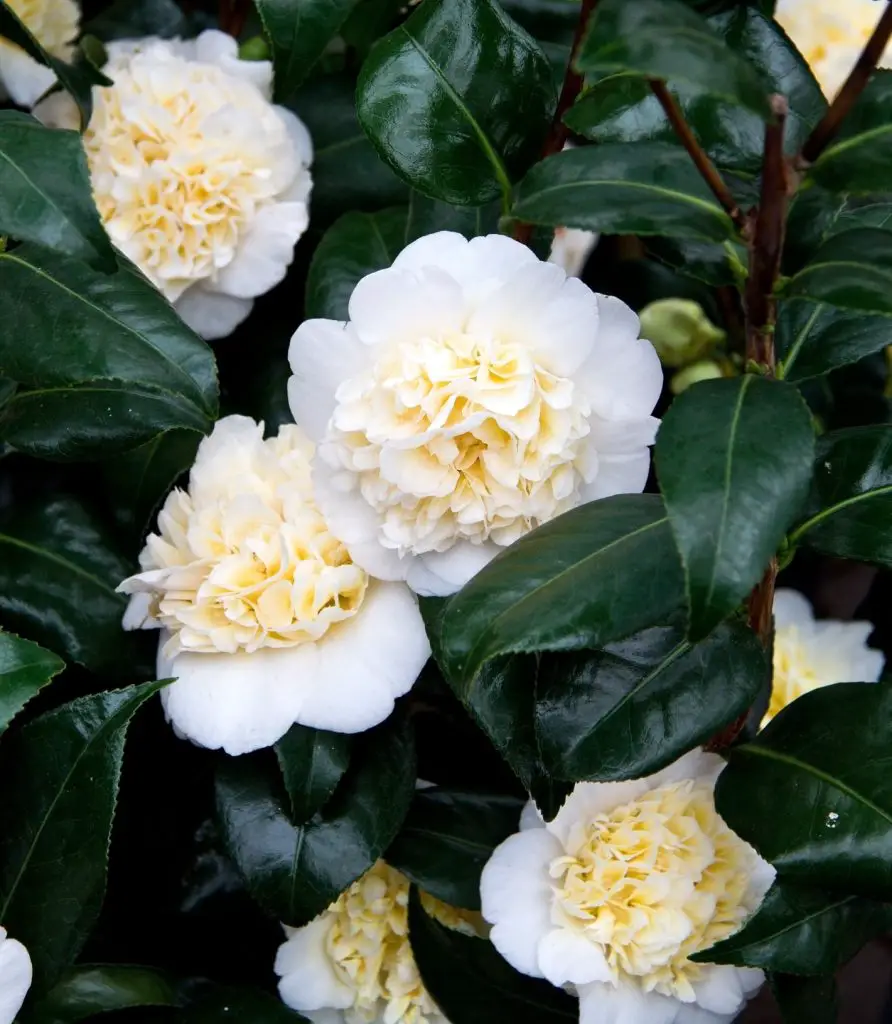
- Start small with one or two plants. My first camellia plant felt like a huge project, but now it’s a breeze!
- Choose hardy varieties from trusted sources, like the Southern Living Plant Collection.
- Monitor your plants during their first few years to ensure they’re happy and thriving.
Wrapping Up
Growing camellias isn’t just about planting a shrub—it’s about bringing year-round beauty and joy into your garden. Whether it’s the elegant camellia japonica or the cheerful camellia sasanqua, these plants are worth every ounce of effort. Happy gardening!
